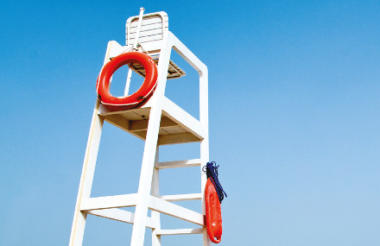You only have to look at the IoF maxim, “excellent fundraising for a better world”, to see the shared vision that we want to work towards. Fundraising should inspire, and fundraisers should be proud to call themselves such; their work is crucial to furthering charitable causes. But, as the President’s Club scandal demonstrated earlier this year, the ends do not justify the means - fundraising targets should not take precedence over the safety and wellbeing of employees and volunteers.
The Charity Commission’s recent findings on the incident show that the trustees were in breach of a number of "key charity law duties", while the Fundraising Regulator’s investigation highlights that the trustees were “not aware of their responsibilities” or of the high standards that the fundraising profession holds itself to.
Other safeguarding revelations initiated by Oxfam have focussed on the international aid sector, but toxic work environments can affect any organisation if there aren’t structures in place to guard against this.
The #metoo movement is giving voice to these experiences; indeed, we have heard examples from our members, both in their workplace and in interactions with donors.
Importance of having these kinds of conversations
At Fundraising Convention, a panel discussion on ‘Women in Fundraising’ asked whether delegates in the room had experienced unacceptable behaviour in their work as a fundraiser, to which 64 per cent of the room answered yes in the online poll. This highlights the prevalence of the issue and the importance of having the kinds of conversations that shine a light on how we can address problematic environments, dynamics, and cultures.
At the IoF, a large part of our mission is to do everything we can to help our members and create an enabling environment for fundraisers. Wherever harassment or discrimination exists we need to add our voice to those saying loudly and clearly that we do not and will not tolerate this kind of behaviour in our sector.
With this in mind we have produced a series of guidance for employers, employees, and volunteers alike to support the kinds of healthy cultures that have an immeasurable effect on the ability of fundraisers to operate to their full potential. In the same way that charities protect their beneficiaries, it is essential to us that fundraisers feel safe and protected in their own workplaces.
If, as an employer, you are unsure where to start in creating the right environment for your fundraisers, our guidance on creating a safe and supportive working culture will help you think through your approach. Have you considered not just your organisation’s safeguarding policy but also whether your job descriptions make it clear what is expected of your staff and volunteers? Have you thought about how you can support those who may have mental health conditions?
The guidance includes a series of helpful checklists, key principles, and useful signposting to try to make sure that you have all your bases covered given the positive impact your actions can have.
Keeping fundraisers safe
But what about the broader circle of people that come into contact with your organisation and its fundraising activities, such as event attendees and supporters? Our second strand of guidance on how to keep fundraising safe covers areas such as protect those you come into contact with from harm, assessing risk, and making a safeguarding policy.
Meanwhile, our guidance for fundraisers hopes to make sure you know where you stand as a fundraiser, what your rights are, and what you should expect from your employer. This isn’t just about safety and security in the workplace (such as knowing your data and privacy is protected or thorough health and safety assessments). It also about feeling respected and valued, whether that is through fair pay, training, the ability to report wrongdoing, or entitlement to flexible working.
Excellent fundraising depends on the trust of supporters and practitioners, and as a sector we should do everything we can to earn and preserve that trust. A good place to start is by backing up our words with actions – and we want to do everything we can to support organisations in doing so.
Just as the fundraising sector was prompted to grow and evolve in response to issues brought to light in 2015, so too is this an opportunity to assess structures and practices so that fundraisers, and all involved in fundraising, are respected and supported.
Lizzie Ellis is policy & information officer at the Institute of Fundraising.
Civil Society Media would like to thank the Institute of Fundraising for their support with this article.
Related articles











